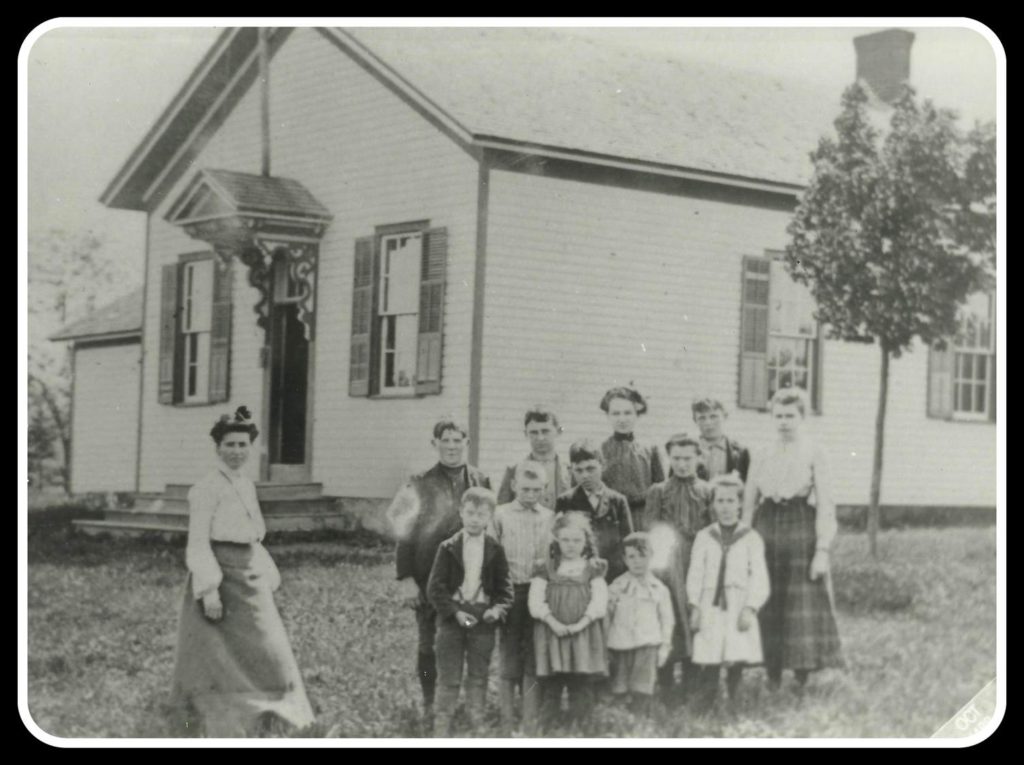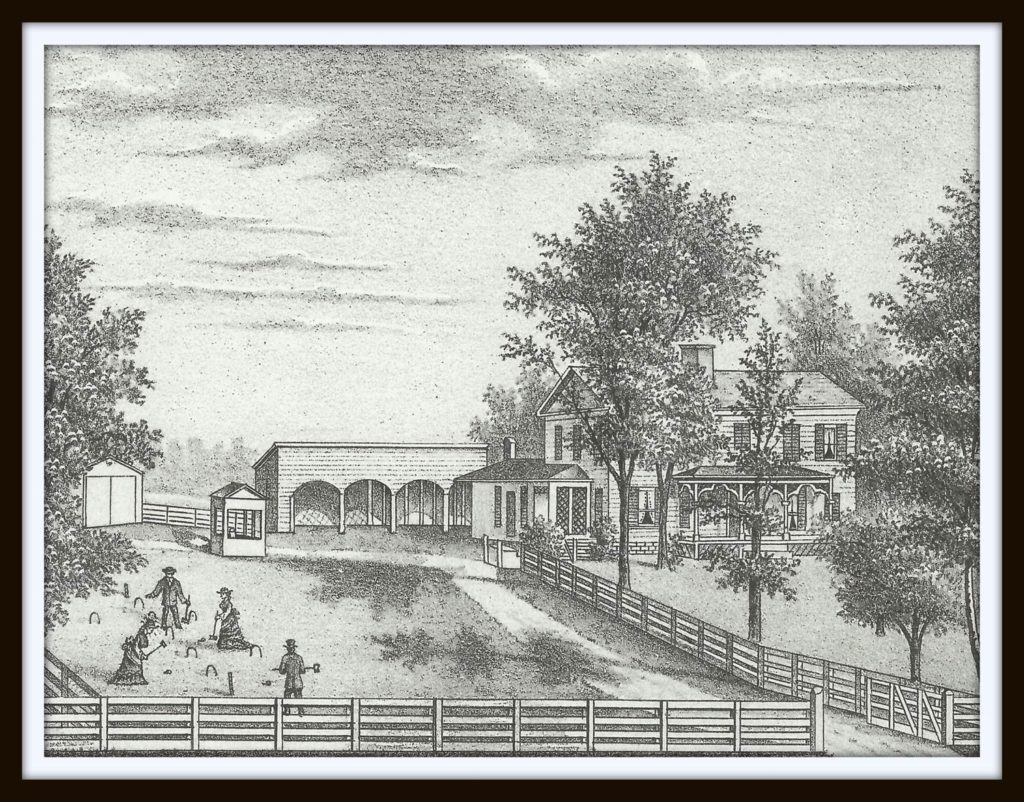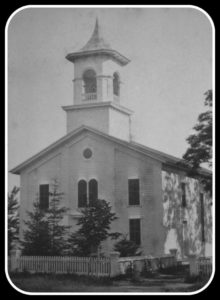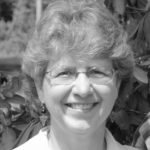Richmond History: Interview with … Morey Ashley
Foreword :
Morey Ashley (February 17, 1876 – April 10, 1972) was 93 years old in 1969 when he was interviewed by Miss Ada White, Richmond’s historian at the time. A newspaper article celebrating his birthday that year mentioned that he was a life-long farmer who “owned registered Guernsey cattle, loved horses, and was a deacon of the Honeoye United Church of Christ.” He was at that time “the oldest voter in the town.” The son of Albert and Alice Beach Ashley, Morey was a direct descendant of Noah Ashley, who settled in Richmond in 1803. His family home was on County Road 37, north of Ashley Road.
A transcription of the audio tape was made shortly after the interview; portions are presented here.
Joy Lewis,
Richmond Town Historian

Where did you go to school?
Well, I went up here to school in the [building there on the corner of Ashley Road.] That was built in 18-something. I was five years old, I remember that. And scared to death! [When I got there] I went into the entry. There’s an entry and cloakrooms on each side of the entry. Girls on one side and boys on the other. And I went in there and the door was shut. School was in session. I stood there several minutes before I got courage enough to rattle the latch. Immediately the teacher let me in. She was the daughter of the miller in Honeoye, John Quick, and a wonderful teacher.
Did you later go to Honeoye School?
Yes. I went to school there – up on what they call Cat Alley [Briggs Street]. My grandmother and grandfather lived up the road there. [Not far from their place] was the school house. A union school. I went there several years.
Who was your teacher in Honeoye?
L.A. Toepp was one of them. He was there the longest. He was a wonderful teacher. Everybody like[d] him.
Who were some of the other students?
There were quite a few Shorts – Dick Short, Scott Short, Pitts Short and then there were the Gilbert boys, Len and Ned, and the two Blackmer twins, Tom and George. Oh, there was a big lot of them. And Truman Stevens. [Frank Foy] went to school [with us], but he went there to raise Cain instead of study. He was a live wire! [But Mr. Toepp could handle him.] The first thing Toepp did after he [came as teacher] – the professor when the fall session started in couldn’t handle it at all and they got Mr. Toepp there [in the spring]. The first thing I remember him doing was to change the seat of Frank Foy. He set him right down in front behind the recitation seats. If he began to operate too heavy, he got orders!

Tell us something about the peddlers that used to come through here.
There was a man by the name of Guizner. He came up here every week – once a week and he took butter and eggs in exchange for other things – chickens and hens or anything like that. Pack peddlers – they used to have those fellows come in here. They were mostly foreigners with two great big leathers as big as a trunk in each hand. Each had a lot of trinkets to sell. Some of them were quite positioned on selling after they got into the house. Always walked. How those men carried those loads was more than I can understand. They’d be as big as a small trunk and packed full of trinkets and socks and shoes.
Didn’t Burr Ward have some fine horses?
Yes. They were very interested in horses – his father and his grandfather. Cal Ward came here, I think, from the East and he went back to Vermont and got a start in the Morgan horses. Then his father, Harry Ward, carried on with the same breed and afterwards Burr did. At one time he had the only Morgan stallion in this country. ’Twas a land-bred Morgan. It went back to the Justin Morgans – the originator of the breed.
Did you ever have any horse races in Honeoye?
I remember one horse race there. They had some field day. There was a big crowd there. They had a horse race across the flats – saddle horses. There was a fellow from Wayland who used to run the jewelry store in Livonia, Wemett. He had a chunky horse about like [a] pony, and it could run just like a deer. And Jim Cochrane had a fine horse and he was in it and several other of the boys. They went over to Blackmer’s and they started from Blackmer’s Corners [the intersection of Main Street and Allens Hill Road]. They were to run as far as the bandstand in Honeoye [at the corner of Main Street and West Lake Road]. They got along [about half a mile] and Wemett’s horse was way ahead of the others. All of a sudden, she shied off and went fully into that ditch and threw him right off onto the land. When the crowd got down there, he was breathing, but he didn’t know much. He was just unconscious. But he came out of it all right. When the horse jumped that ditch, you see – that ditch went on the south side of the road, quite a deep ditch there – she pretty near fell and it threw him off. That was the end of that race. That was the only race I ever saw in Honeoye.

Have you always been a farmer, Mr. Ashley?
Yes, and if I had my life to begin over again, I’d be a farmer. The little old one-horse farmer was a good life. When I was a youngster, a man could come in here and if he could get ahold of a hundred acres of land or fifty acres of land, he could raise a family and get all the things as he needed and then be better off than they are today. They would be economical. They’d buy a farm on a mortgage and, by George, they’d pay for it too. They put up their own meat – kill a beef and have it to last a long time. They put down their own pork, smoked their own hams and a good many of them made their own maple sugar and syrup. I still like home baked bread, better, but it’s a lot more work than going to the store and getting a couple or three loaves.
 Joy Lewis has been the Town of Richmond Historian since 2013. For town of Richmond history you can contact the Historian by Phone: 585-229-1128; or Email: historian@townofrichmond.org
Joy Lewis has been the Town of Richmond Historian since 2013. For town of Richmond history you can contact the Historian by Phone: 585-229-1128; or Email: historian@townofrichmond.org